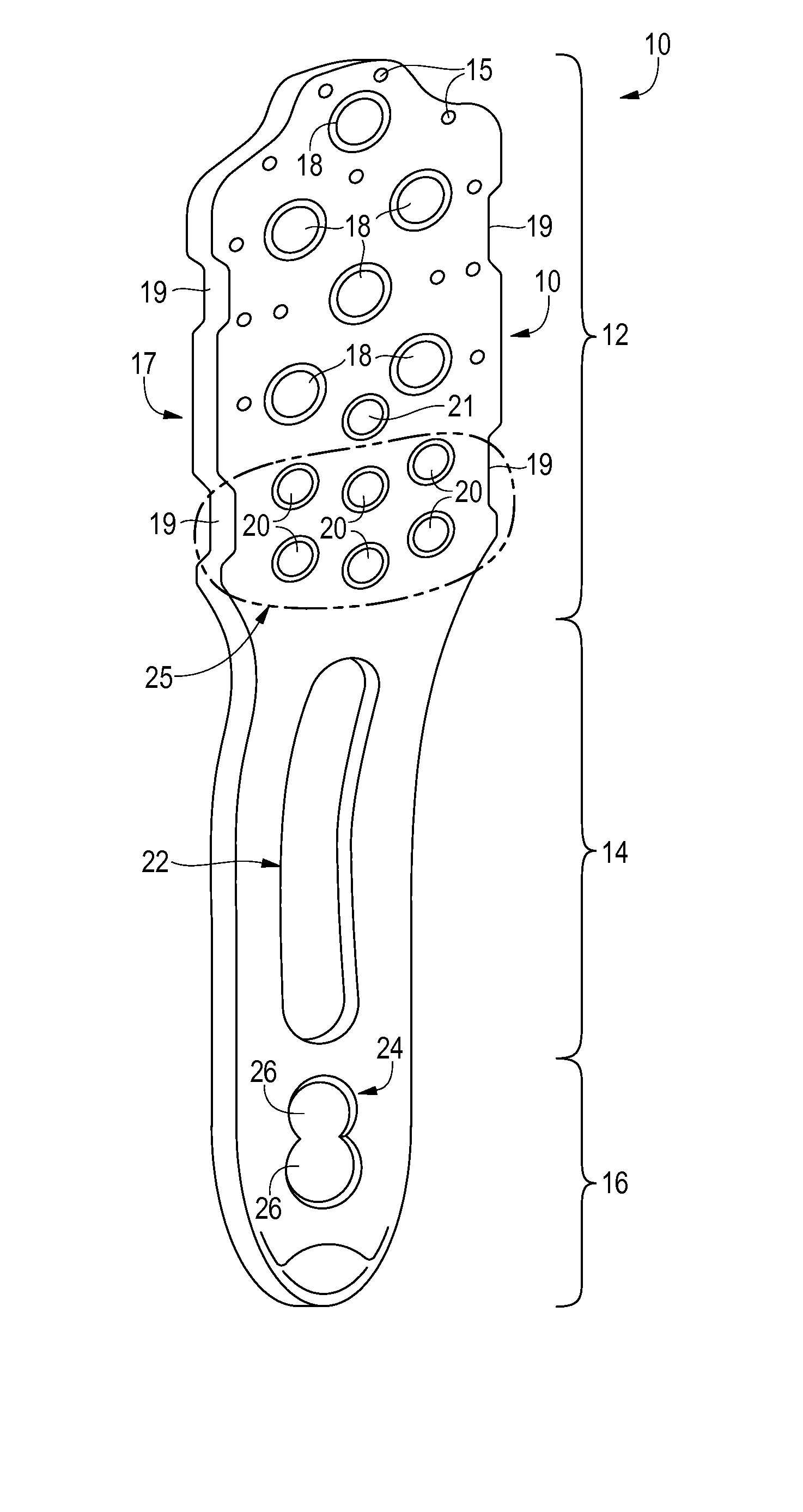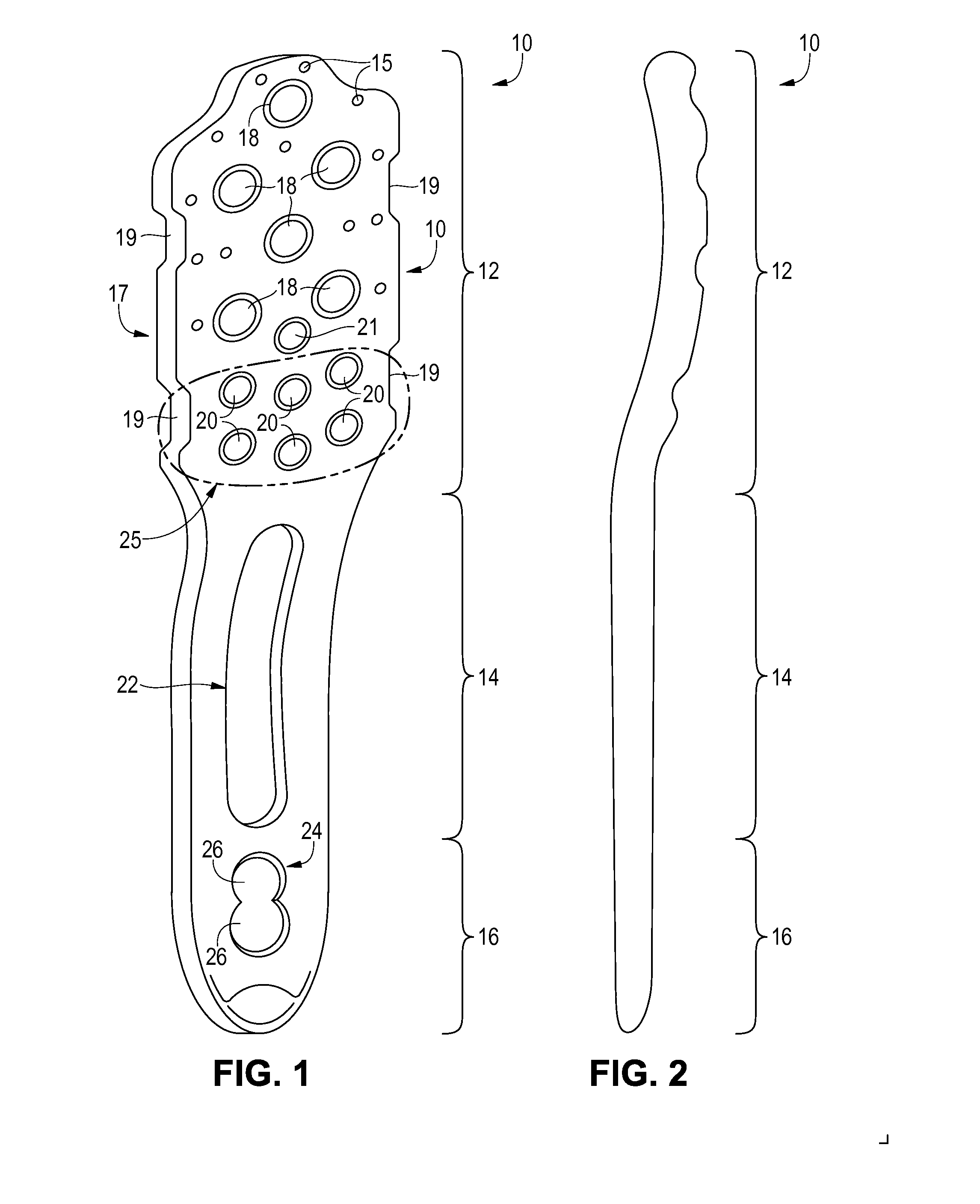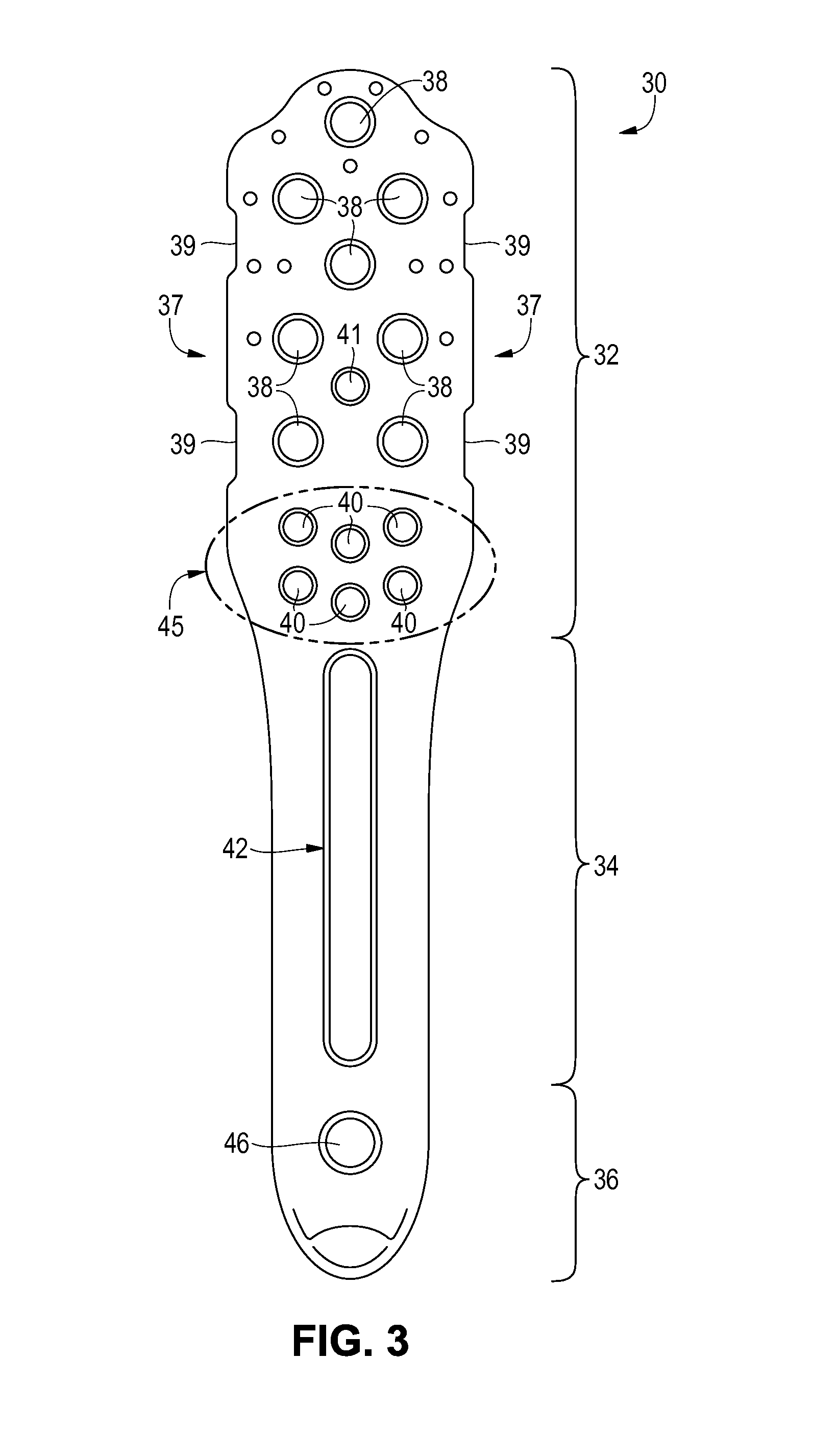Fixation device for proximal humerus fractures
a humerus and fixation device technology, applied in the field of surgical plates, can solve the problems of reducing the range of motion and achieving unsuccessful outcomes, and achieve the effect of enhancing columnation support and preventing varus collapse of the humerus
- Summary
- Abstract
- Description
- Claims
- Application Information
AI Technical Summary
Benefits of technology
Problems solved by technology
Method used
Image
Examples
second embodiment
[0020]FIG. 3 illustrates an implantable humerus plate 30 that can be used to secure bone fragments of the proximal humerus together. As is apparent from this figure, the humerus plate 30 is very similar to the humerus plate 10 shown in FIG. 1. Accordingly, the humerus plate 30 can be unitarily formed from a single piece of generally flat material and can generally comprise a proximal portion 32, a central portion 34, and a distal portion 36. The proximal portion 32 can have a gentle curvature that is adapted to match the curvature of the head of the humerus bone. As with the humerus plate 10, the humerus plate 30 can be approximately 80 to 100 mm long and approximately 2 to 5 mm thick.
[0021]The proximal portion 32 of the humerus plate 30 is wider than the central and distal portions 34, 36 of the plate. In some embodiments, the proximal portion 32 is approximately 18 to 20 mm wide and the central and distal portions 34, 36 are approximately 10 to 14 mm wide. As is further shown in F...
embodiment 210
[0029]Referring to FIG. 6 and the larger form 220 of embodiment 210, the same humerus structures are shown as in FIG. 4 with the same goal to penetrate the calcar region 55 in order to prevent varus collapse as described above for FIG. 4. However, the screw arrangement for the embodiment shown in FIG. 6 is different. Proximal screws 254 pass through openings 238 into the humeral head 53 as in the embodiment in FIG. 4, however screws 255a and 255b pass through openings 241 and slant downward penetrating into calcar region 55 from above. Preferably, screws 255a and 255b angle towards each other slightly so that their tips will both penetrate into calcar region 55 at or above the concave area 59 while compressing the humeral head from slightly different angles. Smaller screws 254b pass through openings 241a and are angled slightly upwards to penetrate into humeral head 53 providing a cross compressive force with screws 255a,b.
[0030]Calcar screws 256a,b pass through openings 240 and ex...
PUM
 Login to View More
Login to View More Abstract
Description
Claims
Application Information
 Login to View More
Login to View More - R&D
- Intellectual Property
- Life Sciences
- Materials
- Tech Scout
- Unparalleled Data Quality
- Higher Quality Content
- 60% Fewer Hallucinations
Browse by: Latest US Patents, China's latest patents, Technical Efficacy Thesaurus, Application Domain, Technology Topic, Popular Technical Reports.
© 2025 PatSnap. All rights reserved.Legal|Privacy policy|Modern Slavery Act Transparency Statement|Sitemap|About US| Contact US: help@patsnap.com



